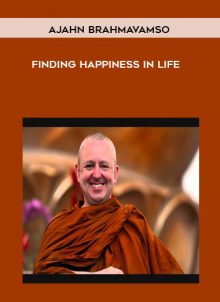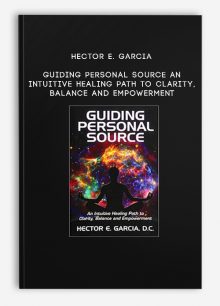Uhl Voland – Showers get more out of life
$25.00
Product Include:[1 PDF]
File size:1.16 MB
Uhl, Voland – Showers get more out of life
**More information:
Get Uhl, Voland – Showers get more out of life at Salaedu.com
Description
[GERMAN] Uhl, Voland – Angeber haben mehr vom Leben [1 PDF]Show-offs get more out of life. What does the peacock want to achieve when it spreads its magnificent tail feathers? Who is impressed by the mighty antlers of the top dog? And why does the suntanned young man get out of his super chic convertible so cool? Does the one who shows off have more of life? And isn’t the waste of resources in stark contrast to the economy of nature? The explanatory models that biology and evolutionary psychology have to offer for extravagance, exaggeration and show in animals and humans are the core theme of this informative and entertaining book. With numerous examples and in clear language, the authors present the concepts and theories that can be used to explain boasting as a biological phenomenon: cost-benefit analyzes, natural and sexual selection, open and covert messages, the handicap principle. And the range of topics raised is impressive.
For example, the examples given to explain the handicap principle range from consciously risky behavior among adolescents to “clothes make the man”, punk and the sex pistols, boxing tactics and golf clubs, status symbols and the “peanuts” of Deutsche Bank, Frederick the Great and Saddam Hussein, military parades on Red Square, the attack on the World Trade Center, lush bouquets of flowers and expensive dining invitations to oriental fairy tales and Saint Martin, the Japanese Yakuzza, love letters and the secret of motivating bosses. Reading the book will change the way you look at the status symbol of your neighbor and the behavior of your colleagues. Spectrum of Science It seems easy to write about self-promoters and egoists. Finally, the status symbols of the neighbors and the behavior of colleagues provide the necessary support. It is far more difficult to uncover the evolutionary roots of showing off.
Matthias Uhl and Eckart Voland have taken on this task. Both work at the Center for Philosophy and Fundamentals of Science at the University of Giessen and are familiar with the concepts and theories of biology and evolutionary psychology. The authors want to use “cost-benefit analyzes” and terms such as “natural and sexual selection”, “open and covert message”, “demonstrative consumption and demonstrative idleness”, “expensive signals” and, last but not least, the “handicap principle” illustrate how much the legacy of evolution shapes our social and cultural togetherness to this day. Uhl and Voland do not understand a show-off as a “full-bodied, fraudulent liar and impostor”. Showers are rather “organisms that use reliable signals to communicate the existence of hidden qualities to their environment”. The book fits the title only with this term of the “honest show-off”, which includes both “the not very sympathetic bigot as well as the matter-of-fact, matter-of-fact displayer”. Only in this way can it be plausibly shown that show-offs of all things have more life.
The starting point of all considerations is the “economy of nature”. On closer inspection, the “beautiful nature” turns out to be an “ugly market”. Wasteful abundance is only faked, because life is marked by scarcity. And shortages inevitably lead to competition – with the result: “Where there can only be one winner, there will be most losers.” The “payout” is always the same. Only healthy offspring counts in evolution: “The primary goal is not survival, but reproduce.” The economic rationality of evolution makes even the “use of the useless” understandable. For example, the male peacock initially appears as a pure luxury creature. Its magnificent plumage is anything but efficient; it’s even a handicap. Because it ties up resources, is a hindrance to movement and attracts not only females but also predators. Nevertheless, the peacock wheel in this book becomes a prime example of the handicap principle, and its wearer becomes an icon of successful show-offs transform pure utility maximizers. ” But why has evolution not rationalized the peacock wheel away, but on the contrary made it bigger and more beautiful? The answer is: The large amount of resources required on the one hand means a handicap, but on the other hand makes the peacock wheel an “honest and forgery-proof message”.
The effort is of a physiological nature, but the result is a social one – namely the successful mating. Nothing can better convince a potential social partner of its own advantages than an expensive signal. Because only an expensive signal is forgery-proof. And so the peacock reliably indicates: Here an individual is in the best of shape – one that can afford to display such splendor. Handicap signals apparently also play a dominant role in human society: “Everywhere”, according to the authors , “We fight for social partners and prestige with the greatest possible use of property and skills.” The cultural evolution only really got going when our ancestors discovered the boasting: “In the cradle of culture there was a show-off.” Uhl and Voland emphasize, “that the handicap approach primarily does not make clear what is in the consciousness of Humans, but rather that he shows evolutionary strategies “. Nothing new has happened in terms of the handicap principle since the Stone Age.
Despite the “latest inventions in terms of cultural history”, our social signals show a remarkable “biohistorical continuity”. We are thus exposed as born show-offs, but the authors believe that the simple “functional logic of” our social communication “does not have to be a disgrace for us humans but rather a feeling of security that can be embedded in nature “. Uhl and Voland have an exciting and entertaining argument and are also captivating with their humorous freshness. Nevertheless, doubts remain as to whether your book is an “honest statement”. Certainly the basic position of the authors that “what we call nature is an economically structured system” is of considerable heuristic quality Value. They are also allowed to see “the explanatory potential of this approach as absolutely central to the understanding of all living things”. But in the endeavor to reduce complexity in order to “make the world more manageable”, they slide unsteadily into strict monism: “Everything in our human culture is the fruit of the mechanisms of the handicap and utility principle.” In order to maintain this sentence, the authors would have to reinterpret the achievements of human culture beyond recognition.
More Course:EVERYTHING ELSE
Outstanding Course: https://tradersoffer.forex/product/ken-wilber-evolutionary-dynamics/
1 review for Uhl Voland – Showers get more out of life
Add a review Cancel reply
Related products
Everything Else
Plein Air, Painting the American Landscape – Alaska Episodes
Everything Else
Everything Else
Richard Clear – Combat Tai Chi vol 17 – Breathing for Tai Chi
Everything Else











king –
We encourage you to check Content Proof carefully before paying.“Excepted” these contents: “Online coaching, Software, Facebook group, Skype and Email support from Author.”If you have enough money and feel good. We encourage you to buy this product from the original Author to get full other “Excepted” contents from them.Thank you!